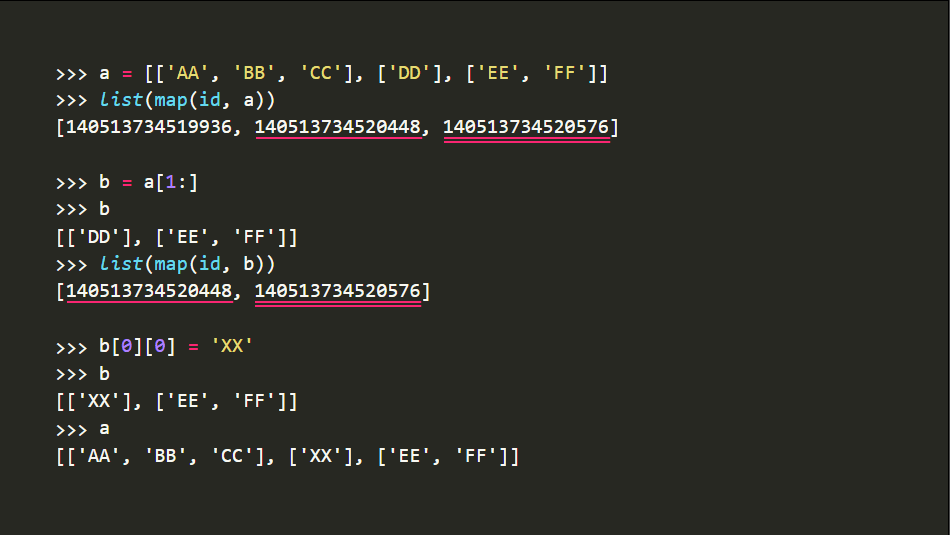Explore the World's Best Ideas
Join today and uncover 100+ curated journeys from 50+ topics. Unlock access to our mobile app with extensive features.
slice
slice(stop)
slice(start, stop, [step])
- Standard indexing relies on slice(): a[start:stop:step] calls a.__getitem__(slice(start, stop, step)).
- slice() creates a shallow copy of the selected elements from the original list.
- Whenever you slice a list, the Python interpreter creates a new list and populates it with references to the elements you selected from the original list. Given that a reference needs 8 bytes on 64-bit systems, the overhead of copying references becomes noticeable when working with large lists. For example, slicing 1000 elements allocates almost 8kb worth of references.
2
11 reads
MORE IDEAS ON THIS
itertools.islice
islice(iterable, stop)
islice(iterable, start, stop, [step])
- Returns an iterator that produces the selected elements from the iterable. It skips start elements from the iterable, and then produces values until stop is reached, ...
2
7 reads
slice or islice?
Choosing between slice() and islice() is a trade-off between memory usage and iteration speed. slice() is faster, but requires more memory, whereas islice() allocates a constan...
2
8 reads
CURATED FROM
IDEAS CURATED BY
Alt account of @ocp. I use it to stash ideas about software engineering
🐍 Python docs & Stack Overflow
“
Read & Learn
20x Faster
without
deepstash
with
deepstash
with
deepstash
Personalized microlearning
—
100+ Learning Journeys
—
Access to 200,000+ ideas
—
Access to the mobile app
—
Unlimited idea saving
—
—
Unlimited history
—
—
Unlimited listening to ideas
—
—
Downloading & offline access
—
—
Supercharge your mind with one idea per day
Enter your email and spend 1 minute every day to learn something new.
I agree to receive email updates
